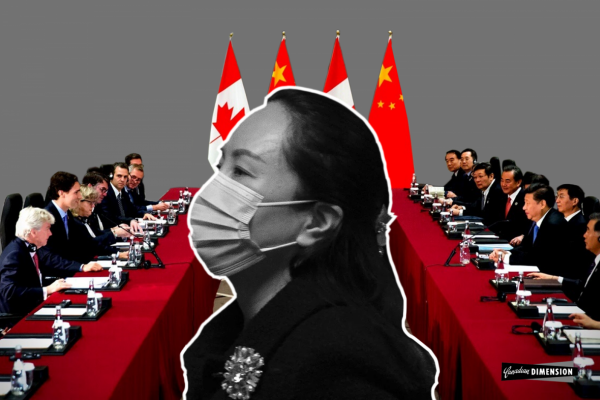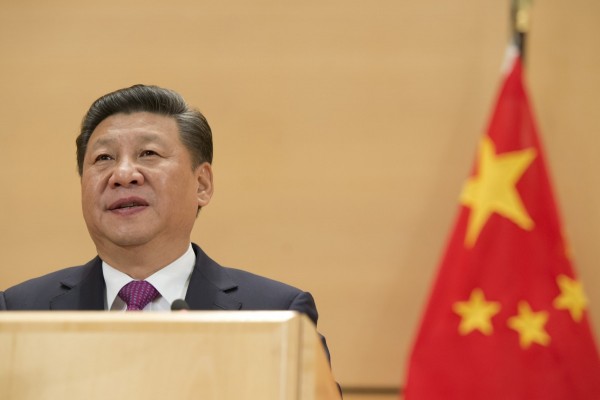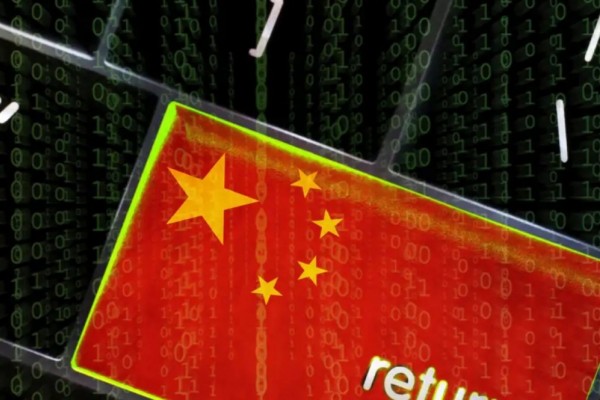-

Backlash over ‘Free Meng Wanzhou’ event reflects growing anti-China sentiment
Calling to “Free Meng Wanzhou” is not an endorsement of the Chinese government’s unacceptable detention of Michael Kovrig and Michael Spavor, nor its policies in Hong Kong or Xinjiang. Rather, it represents a much-needed effort to fundamentally reassess Canadian foreign policy and push back against the new Cold War on China.
-

Vote No. 23 is the first shot in Erin O’Toole’s war on China
Vote No. 23 targets China as a threat to Canadian “values” and demands the government table a plan to “combat China’s growing foreign operations.” In the midst of the pandemic, this motion have not penetrated most people’s bubbles. We ignore it at our peril. Vote No. 23 represents the thin edge of a wedge that would cleave the world in two and potentially lead to unmitigated disaster.
-

Canada should release Meng Wanzhou and pursue an independent foreign policy
The current hearings on the extradition of Meng Wanzhou are a tangled web of legal arguments that obscure a simple truth: Ottawa is enabling a witch hunt on the part of the Trump administration against a Chinese capitalist rival—the telecommunications giant, Huawei. This is putting Canada in the crosshairs of the US and China, aligning us closer to wayward American foreign policy.
-

Canadian media’s double standard on ‘foreign influence’ has become painfully clear
Lately, the Globe and Mail, Canada’s ‘paper of record,’ has been so gripped with anti-Chinese fervour that it has become blind to a blatant double standard. Contrasting the newspaper’s reporting on Chinese influence in Canada with its coverage of the Israel lobby highlights the increasingly Sinophobic nature of its journalism and commentary.
-

Why America’s economic war on China is failing
Both the Republican Party and the Democratic Party are committed to a policy that will not cause China to surrender to the ambitions of the United States. Whether or not the US can backtrack from this policy orientation and begin a dialogue with China remains to be seen; doing so would be, of course, desirable.
-

Why a reset of Canada-China relations is more urgent than ever
Is the surest path to victory in the Green Party leadership race, as Georgia Straight editor Charlie Smith suggests, to “explicitly support Hong Kong’s right to self-determination and declare unwavering support for the independence of Taiwan”? The world doesn’t need a second Cold War. Calling for an end to Canada’s One China policy pushes us further down that path.
-
Canada’s membership in the Five Eyes alliance promoting conflict with China
In recent weeks movements in different countries have toppled statues and put the police and other institutions upholding systemic racism on the defensive. Yet, amidst unprecedented protests against racism, there has been remarkably little interest in the white supremacist foreign policy alliance currently driving conflict with China.
-

Kerala’s social policies are the best prevention against future pandemics
Kerala, India’s communist state, has managed to flatten the curve with forceful measures. They activated controls at airports and train stations to detect the entry of the virus into the state, and established temporary quarantine shelters to lodge tourists and non-residents. This was followed by aggressive testing, contact tracing, long quarantine periods, shelters for migrant workers, and cooked meals for those most in need.
-
Lessons from Taiwan during COVID-19: Between politics and collective experience
What will the post-coronavirus world look like? History tells us that in times of crisis, large corporations and the most vulnerable in society seek refuge under the protection of the state. The 2008 financial crisis already made clear that markets alone cannot drive competitiveness and prosperity. On the contrary, state intervention is crucial.
-
‘The Poland of northeast Asia’: Mongolia’s lithium frontier
The popular argument that lithium is necessary to transition vehicles away from fossil fuels usually doesn’t go deeper to critique the influence of Western companies in those countries with substantial lithium deposits. For two decades, mineral prospecting in Mongolia has gone hand-in-hand with neoliberal policy intervention, and the looming lithium boom signals that this will only intensify.






